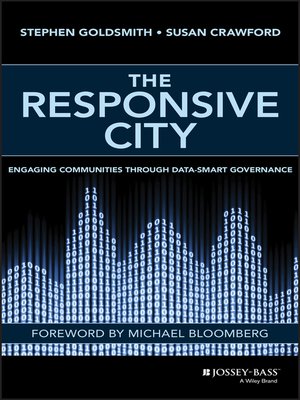
Sign up to save your library
With an OverDrive account, you can save your favorite libraries for at-a-glance information about availability. Find out more about OverDrive accounts.
Find this title in Libby, the library reading app by OverDrive.



Search for a digital library with this title
Title found at these libraries:
| Loading... |
The Responsive City is a guide to civic engagement and governance in the digital age that will help leaders link important breakthroughs in technology and data analytics with age-old lessons of small-group community input to create more agile, competitive, and economically resilient cities. Featuring vivid case studies highlighting the work of pioneers in New York, Boston, Chicago and more, the book provides a compelling model for the future of governance. The book will help mayors, chief technology officers, city administrators, agency directors, civic groups and nonprofit leaders break out of current paradigms to collectively address civic problems. The Responsive City is the culmination of research originating from the Data-Smart City Solutions initiative, an ongoing project at Harvard Kennedy School working to catalyze adoption of data projects on the city level. The book is co-authored by Professor Stephen Goldsmith, director of Data-Smart City Solutions at Harvard Kennedy School, and Professor Susan Crawford, co-director of Harvard's Berkman Center for Internet and Society. Former New York City Mayor Michael Bloomberg penned the book's foreword.
Based on the authors' experiences and extensive research, The Responsive City explores topics including:






